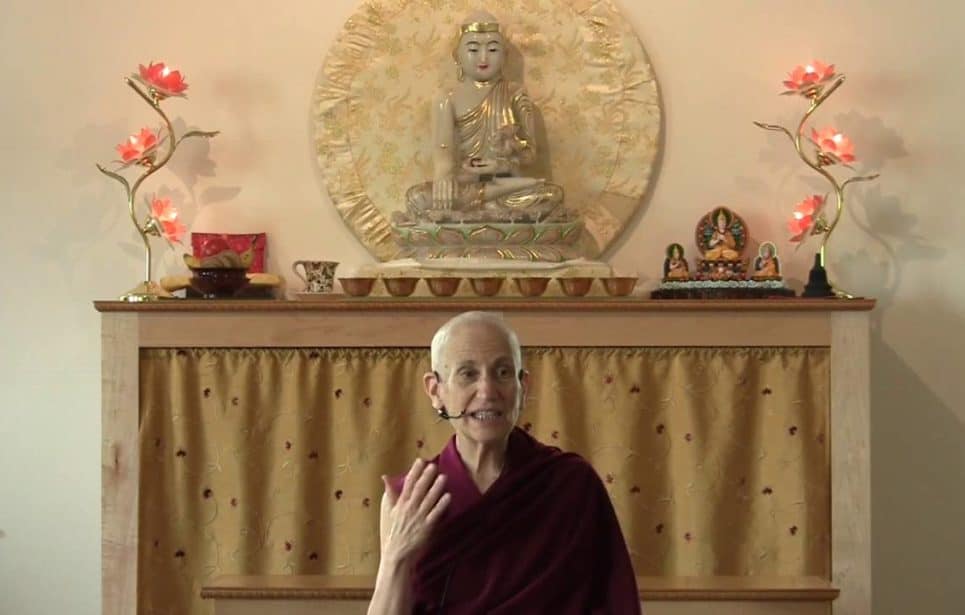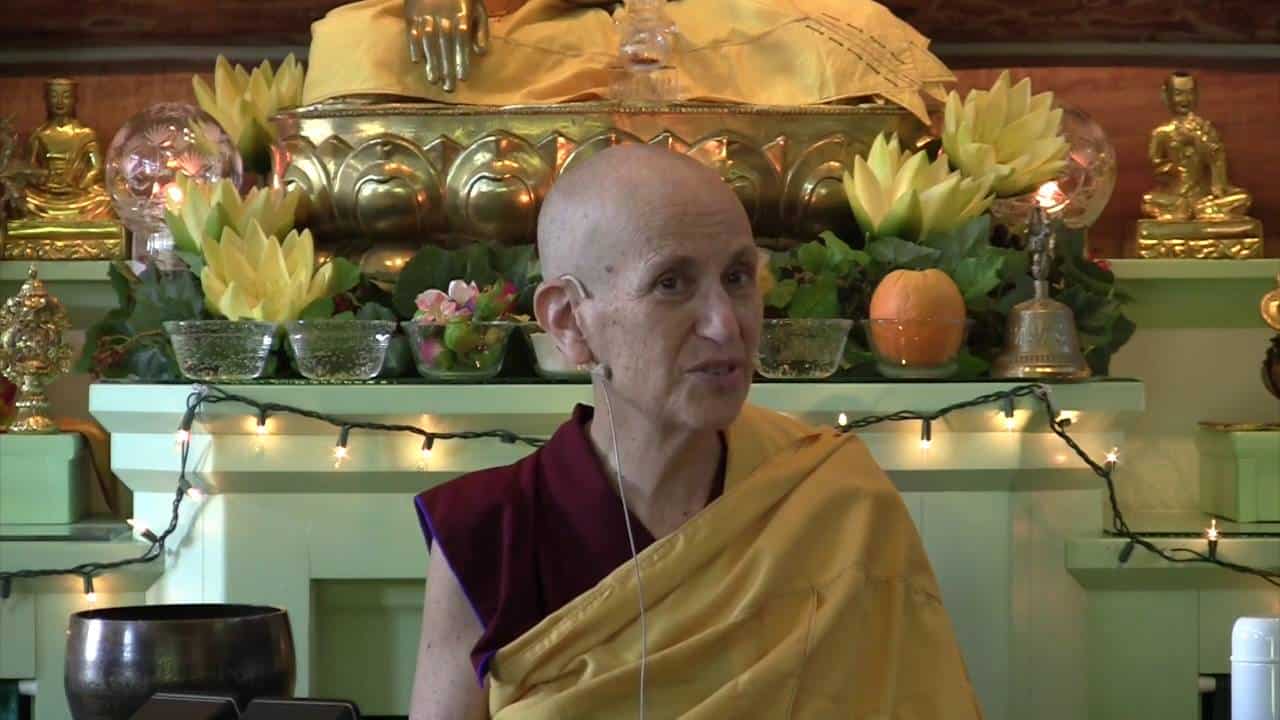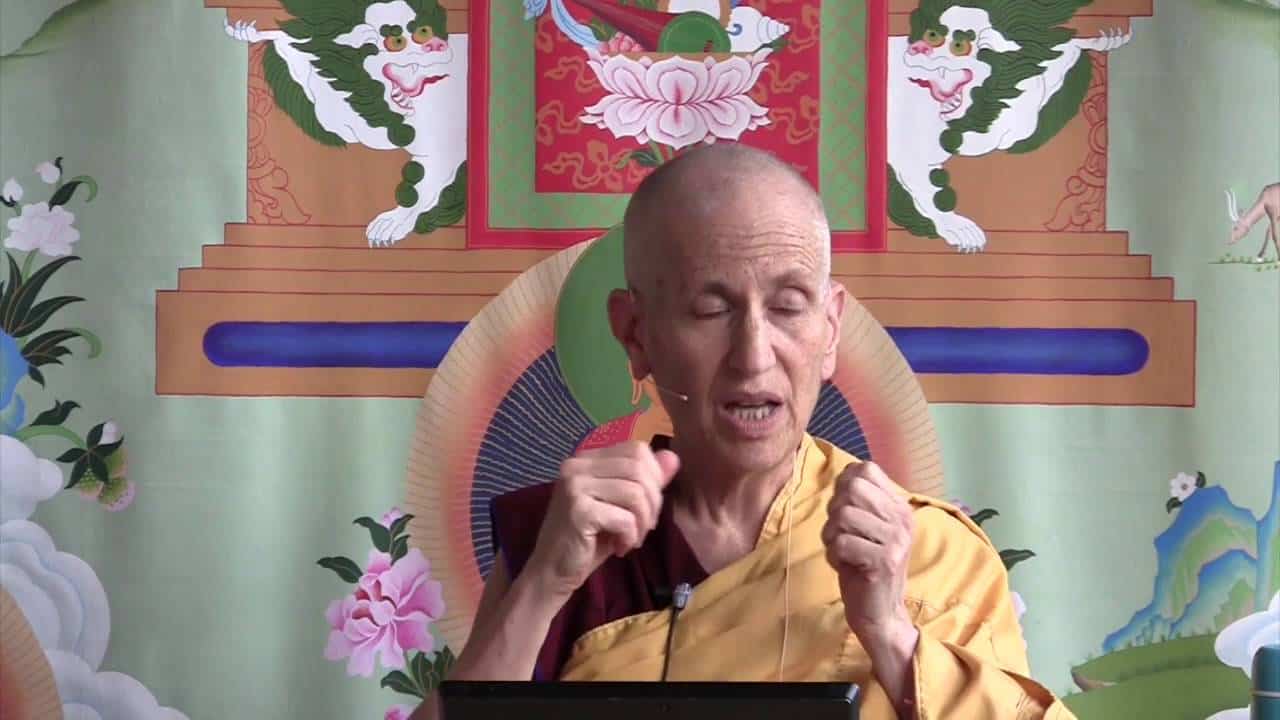Respecting others
Respecting others

The following is an excerpt from a letter written to Venerable Chodron by Mary S. In her poem “I,” Mary reflects on the value of offering advice and opinions and considers who it is that is best suited to offer unsolicited advice.
As I may have shared with you, I come from a background of violence. For years I was in a toxic relationship. I learned at an early age through my father’s example to tolerate violence from someone you love and never strike back. As a result, all my anger went inwards to the point that I no longer needed an outside abuser, as I had become quite good at doing it to myself.
When I came out of prison I went to work for Liberation Prison Project and I lived with my root teacher. Needless to say, my teacher worked on my mind and brought all that anger out so that I could see it. After nearly ten years of service it really began to manifest and I had to confront it on a much deeper level.
I was fortunate enough to be given the advice to do at least six months of retreat around love and compassion, and did retreat on Chenrezig. I am still working on this easier, softer way which is unfamiliar to me.
How I behave with my speech has been particularly of interest to me. More often than not I learn through observing other people’s behavior. In my observations I have begun to hear the underlying tones of conversations and observe people’s body language during conversations.

I realized I spend most of my time giving my opinion/advice even if not spoken directly. (Photo by Vivian Chen)
It became really apparent to me that we give our opinions on so many things and can be very intense when doing so. I noticed that sometimes people get extremely upset when they heard opinions they didn’t agree with and happy when they heard what they wanted to hear. In “opinions” I also include advice. I then began to look at how and when I give my opinion, and it got juicy, then a bit bitter as well. I realized I spend most of my time giving my opinion/advice even if not spoken directly. How quickly I am willing to give advice.
This is tricky because I don’t want to give advice that is not asked for. It is not my business to do so, at least I strongly feel this, but it’s difficult to break such a deep habit. I have come to the conclusion that giving one’s opinion and advice when not asked for is a form of violence. Would you agree with this? I would really appreciate your opinion on this as I value it a great deal. [Venerable Chodron shares her thoughts on this. See the first of the two teachings at the end of this post.]
Though I want to respect other people’s boundaries, I cannot help but think that more often than not I don’t. I feel I am committing a form of violence and stepping all over other people’s boundaries whenever I open my mouth to give my opinion and advice without permission.
In my mind the only people who have the right to give you advice which is not directly asked for are your spiritual teachers or mentors, people whom you have given permission to do so. When you take a teacher or mentor it is a given that you are giving them permission to work on your mind, give advice, be hard on you when needed, and push you to your highest potential. After all, this is the reason we have them as teachers.
They may squeeze your ego, and at every opportunity give you a chance to look at and work on your mind. With some teachers this means stepping over the walls you have set up to protect your ego. The means a teacher uses on their student comes down to how the student’s mind works. With an angry student, teachers will use a lot of love and support; with a student with strong attachment, a teacher may use wrath.
Wrath by my definition is a method a teacher uses to push a student beyond themselves, so the teacher’s motivation is for the benefit of the student and there is no other motivation. There are people who do things, saying they are using wrath, but in fact they are just angry or attached to their own stuff and justify their behavior by saying it is skillful means. Only a person who has Dharma wisdom can use wrath, so never accept it from anyone who is not your spiritual teacher or mentor.
Here is my poem.
“I”
How subtle you are
You walk with me all day long
I am often not even aware that you are there.
You make yourself known
Sometimes in very obvious ways,
More often than not
You linger in the recesses of my mind
Manifesting yourself through the most interesting ways.
How subtle you are
Speaking words of advice unsolicited to anyone who has ears.
Sometimes you are aggressive, sometimes neutral, sometimes seemingly loving and with great appeal,
Whatever form you take through my body
It is very clear,
Your intent is always your own protection my dear.
How subtle you are
Yet I know dear ego
Your greatest weapon is your opinion
As nothing more clearly says, “I am here.”
The ego has no boundaries and respects no one else’s
Therefore my closest enemy is always near.
Yet I pay attention,
I lay naked the truth before me
Therefore I have no fear in confronting you
At the very least you are my Tiger to be tamed.
How subtle you are
Awareness is my weapon,
Love for others my motivation,
I stand firm on the battlefront of my mind.
As you are my only enemy
Therefore your violence in all forms
No matter how subtle they are
Will be challenged until they cease to manifest.
I have no choice; it is my duty to do so,
As I have this solemn vow.
.


